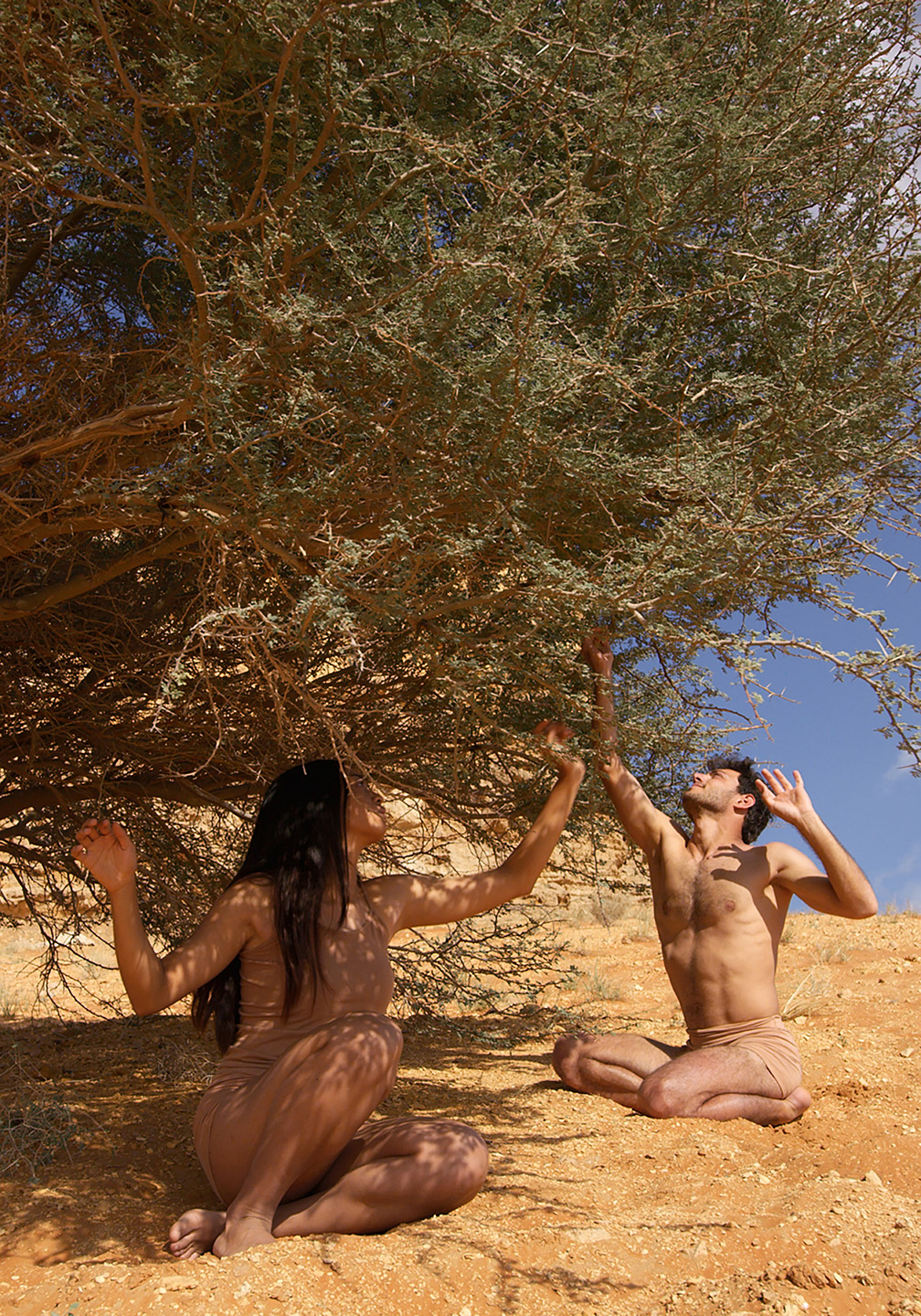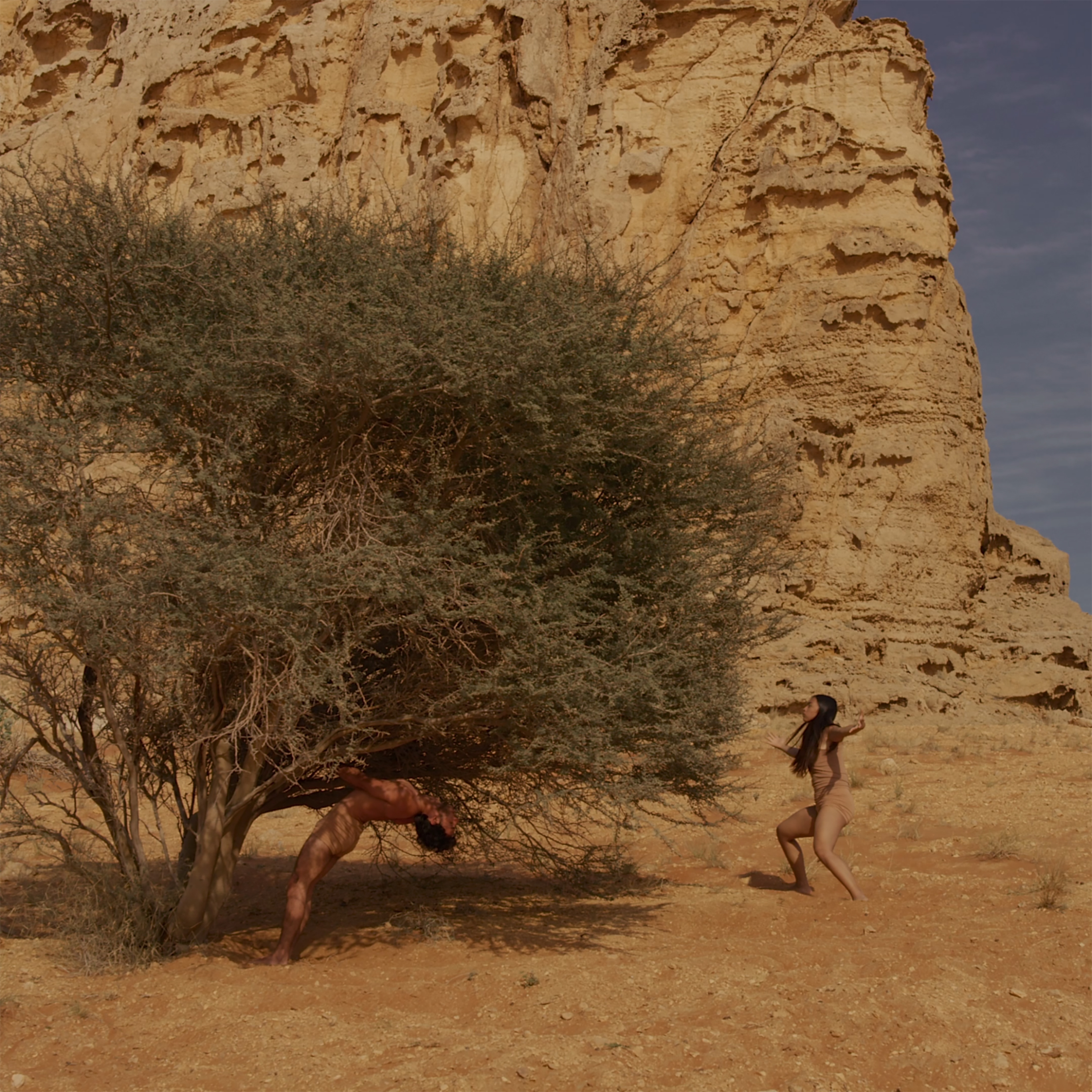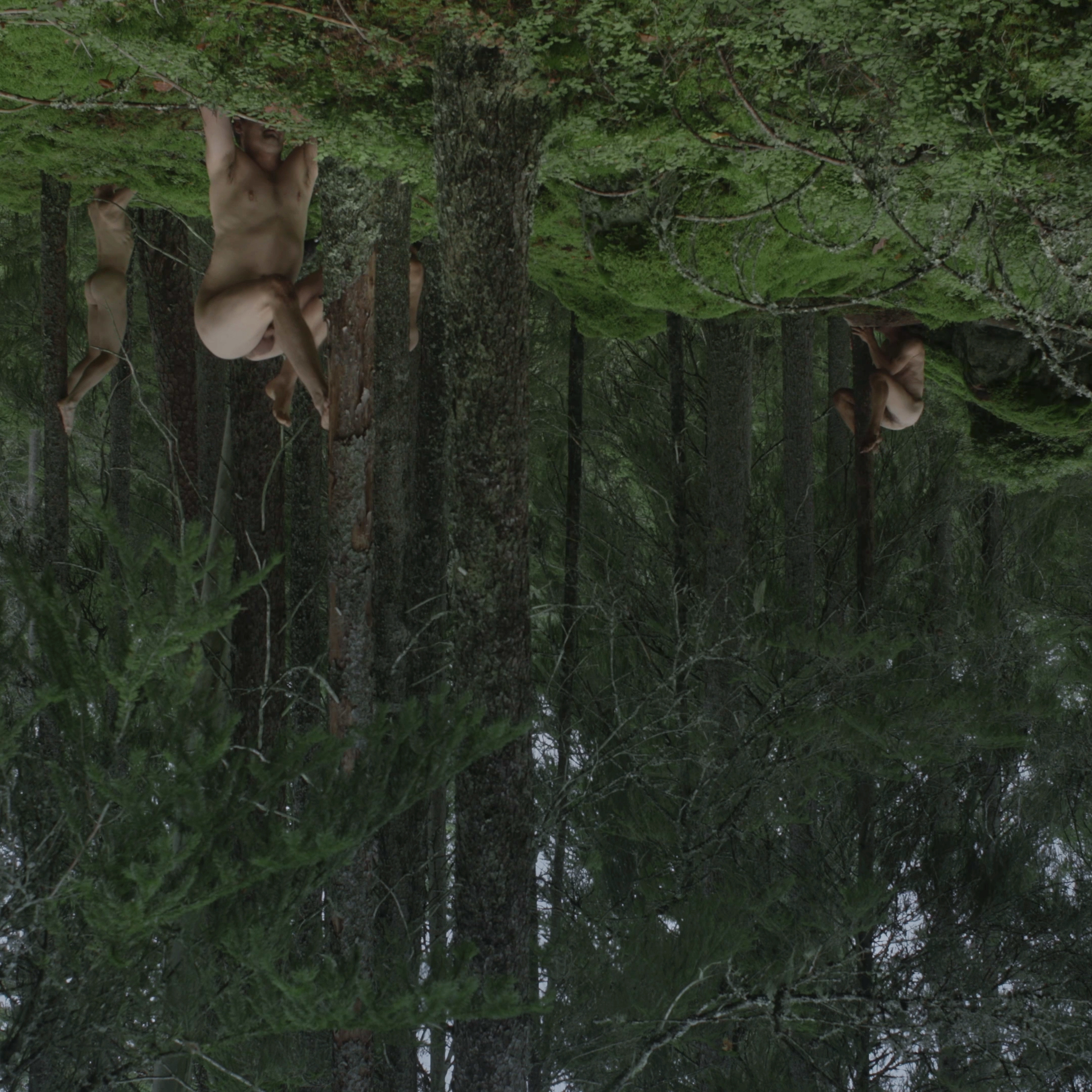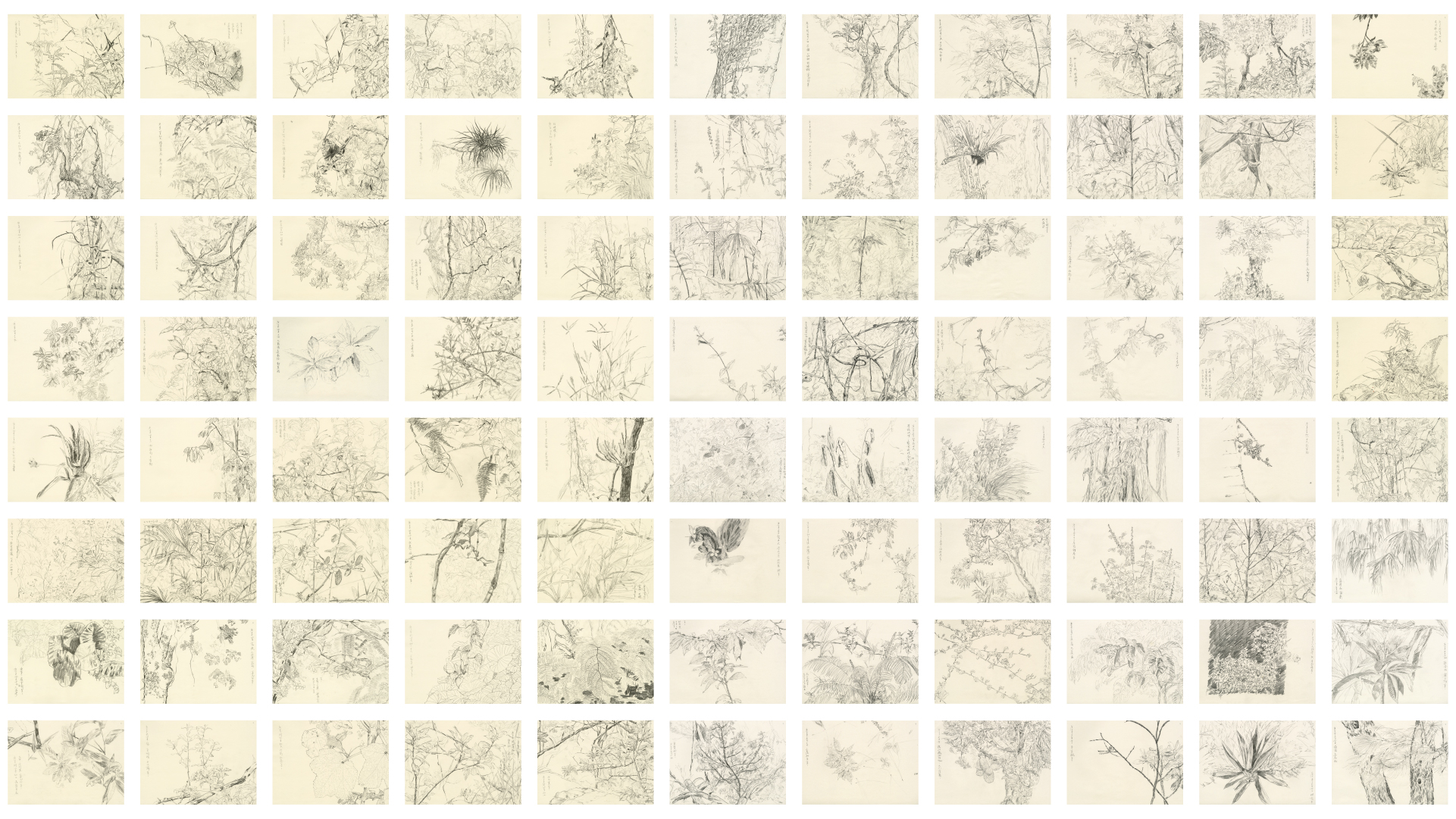
The Pleasure of Slowness
ZHENG BO
 Zheng Bo, Samur, 2023
Zheng Bo, Samur, 2023
Every day, we get new reports on the global climate crisis, growing social divides, political war situations, that have an increasing impact on our physical and mental existence. In the exhibition The Pleasure of Slowness ecoqueer artist Zheng Bo invites the public to explore how we can improve our relationships to other life forms.
“If we really want to move into a future where humans are not the centre of the world, we need to treat other forms of life and materiality with full respect, biologically, intellectually and politically.” Zheng Bo.
How do we interact with nature’s life and rhythms? Can we learn to acknowledge and respect other forms of life? The exhibition The Pleasure of Slowness focuses on plant life. Zheng highlights how simple pencil drawings relate to a long botanical history. By sketching, he builds a close relationship with different plants and spiritual wellbeing. In the exhibition, a selection of these pencil drawings is on display.
For this exhibition, Zheng studies different kinds of moss that has been around for millions of years. Together with the Botanical Garden in Gothenburg Zheng examines the importance of moss, historically, medically and in ancient folk religion, but also the role that moss could play in our contemporary world. He combines his life philosophy with our local textile history by weaving a moss bed in a pattern inspired by the textile works of the artist Märta Måås Fjetterström.
In his artistic projects, Zheng collaborates with humans and plants in performing collective exercises in ecosensibility, a bodily capability through which humans sensuously can resonate, communicate, and interact – and through that morally engage – with nature in its entire complexity. In the exhibition, films are shown of people interacting and dancing with nature.
Using artistic methods Zheng reevaluates the relationship between science, nature, and culture, and between art and life. In his artistic practice he seeks to look beyond the anthropocentric perspective, and he seeks an approach that encourages contemplation and attention, while fusing life with art.

Zheng Bo, Le Sacre du printemps, 2021-22.
The title of the exhibition, The Pleasure of Slowness, is from a work by Swedish writer, translator, and botanist Sten Selander (1891 – 1957). Selander is known for his portrayals of nature and his in-depth criticism of social modernism, which he called the “machine civilisation”. Early on, he warned of a future scarcity of natural resources and argued that we do not have the moral right to enrich ourselves at the expense of unborn generations.

Ett urval av teckningar ur Drawing Life visas i utställningen.
Special thanks to the Botanical Garden in Gothenburg for sharing their time, expertise, and wisdom with us. Also, to Rebecca Chentinell & Rickard Borgström in DACE – Dance, Art, Critical Ecology together with Benedikte Esperi and Gothenburg University for a much-appreciated collaboration.